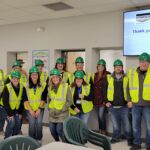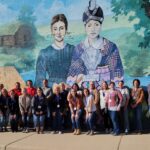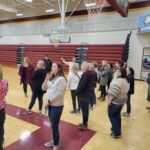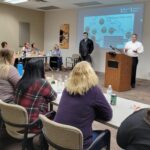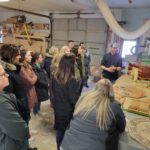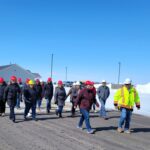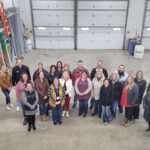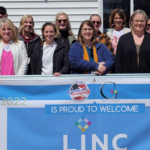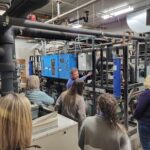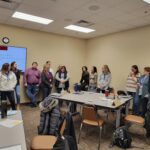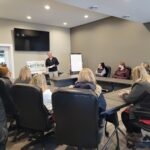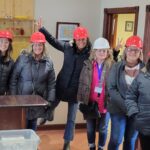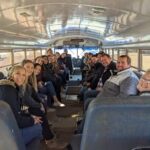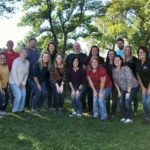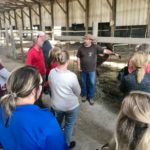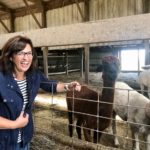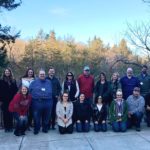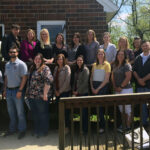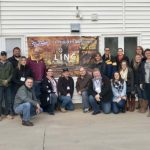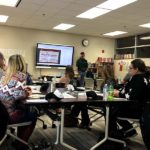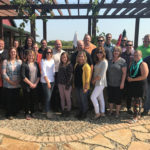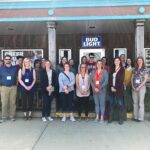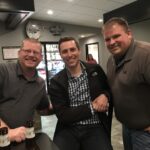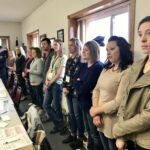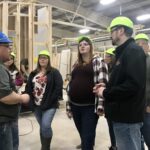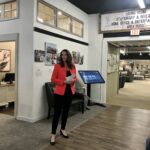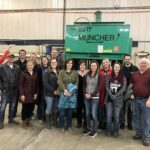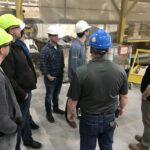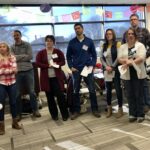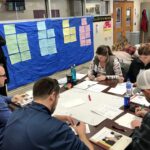Program Format
- Cohort of 24 people
- Nine sessions held one day a month Sept. – May
- Sessions held in various communities across the County
- Leadership training and community speakers
- Site visits of community assets and resources
- Reflection and dialogue
Program Topics
Identifying your own preferences and behaviors when you interact with or lead others is key to being an effective leader. This workshop uses the Myers-Briggs Type Indicator which is known for the highest reliability and validity of any personal assessment. Based on Carl Jung's theory of types, the MBTI helps participants better understand their personal preference for taking in and processing information. Understanding how your preferences may differ from others is key to improved communication, decision-making and practices in both your personal and professional life. This session will be delivered by Catie Rasmussen, retired U of M Extension Educator and includes the MBTI Assessment.
The #1 reason people leave jobs or organizations is that they do not feel valued. There is a way for you to build a culture where people feel valued, trusted, and confident to take action. During this session, participants will investigate their current work culture, learn IMPACT techniques that build trust through clear communication, and create an action plan to nurture their own thriving work culture. Participants will leave this session with a plan and ready to use them in their everyday life to lift up team members, coworkers, clients, and even family members to grow and achieve their true potential. This session will be delivered by owner of IMPACT, Ann Vote.
Discover and grow talents so that they become strengths that help individuals and communities thrive. Using the StrengthsFinder 2.0 assessment by Gallup, participants will identify their personal strengths and ways to develop effective teams and encourage member motivation and satisfaction. Participants also explore the science and research behind positive emotions and how to cultivate healthy environments at home, work, and everywhere in between. This session will be delivered by U of M Extension Educator and includes the Strengths Finder Assessment.
Participants learn about typical patterns and dynamics related to conflict and ways to effectively deal with conflict situations. Using the Thomas-Kilmann Conflict Mode Instrument participants are able to understand their preferred conflict style and recognize the conflict styles of others. Specific techniques are shared and practiced to be more effective in situations where conflict is present. This session will be delivered by Catie Rasmussen, retired U of M Extension Educator and includes the TKI Assessment
Historically, most leadership programs devote their focus on tenets of leadership. However, with the increase in collaborative and global perspectives in communities and organizations, the need to develop effective followers is essential. This workshop introduces participants to the types of followers, their needs, and the importance of their roles. It is based on the latest research of Chaleff with the purpose to change perspective, build knowledge, and develop skills in the area of followership. This session will be delivered by a U of M Extension Educator.
Effective leadership in today's complex world requires awareness, understanding and capacity for working in and communicating across cultures. During this workshop, participants will have the opportunity to review and consider their own cultural backgrounds and influences; understand different cultural styles of communication; how these styles affect their preferred approaches to decision-making and communication; and devise a personal plan using tools and techniques to increase intercultural competency. This session will be delivered by a U of M Extension Educator.
This workshop explores what ethics mean for individuals and leaders in organizations in a world with many values and morals. Strategies are shared for how ethics can be developed within organizations. Tools for ethical decision-making are presented, including frameworks for deciding on the right thing to do when facing moral temptations and with ethical dilemmas with no clear right action. This session will be delivered by Catie Rasmussen, retired U of M Extension Educator.
A generational shift is changing the dynamics of the workplace and this shift, a demographic reality will continue to grow in the next decade. Plus, todays work world is complicated by many factors: globalization, breathtakingly fast technology changes, flattened organizations, social media and increased expectations of customers and clients. If organizations want to attract and retain quality workers, they have to position themselves to meet or exceed the expectations of a multi-generational workforce. Questions need to be discussed to rethink policies and practices around management, training, and work-life balance. This session will be delivered by Catie Rasmussen, retired U of M Extension Educator.
The final session on May 14, 2023 will begin in Redwood Falls as we board a coach bus traveling to unexplored places in Redwood County. During our travels LINC Redwood County Program Coordinator and Board Members will facilitate discussion with participants to understand the purpose and power of vision desired for the future of Redwood County. Participants will be challenged to reflect on their personal visions as a leader and consider the values and shared vision for their organization or community.
Site Visits
Half of each day will include site visits and/or informational sessions about the various assets of our county. This could include visits to manufacturing facilities, agricultural operations, retail establishments, historical sites, and more.
Each site visit is determined by the day chair(s). They arrange a variety of great opportunities for participants to expand their knowledge of what our county has to offer. These will likely change from year to year.
Tuition
Tuition for the program is $500, which includes your education and lunch per session. This breaks out to $55 per session! Tuition assistance is available for consideration. Please reference the application for more details. Participants will be responsible for their own transportation.
Here's another tool to use when speaking with your boss about participating!
Gallery
Check out pictures from past cohorts!
APPLY NOW
Applications for the 2024-25 cohort closed July 16, 2024. Check back June of 2025 for future opportunities to apply!

